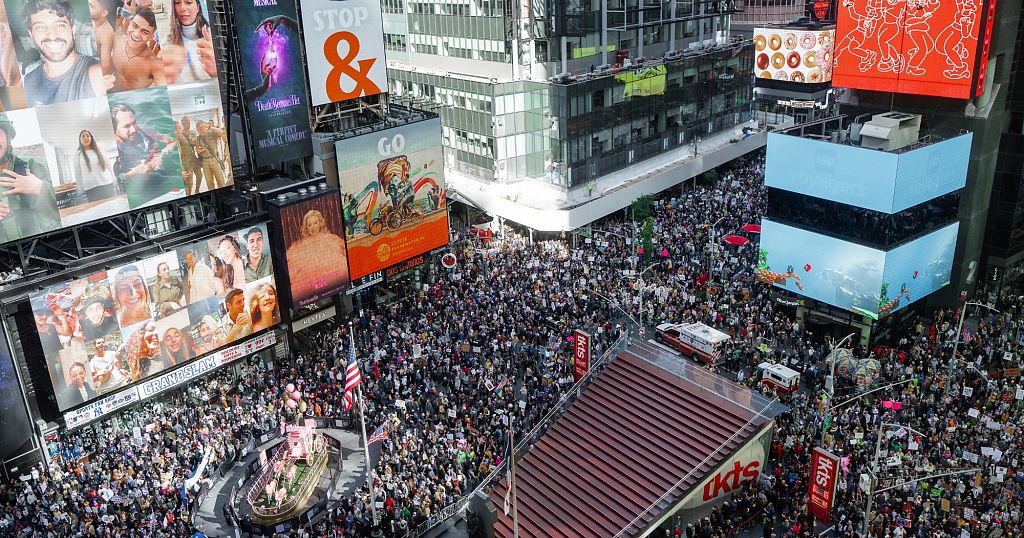Tens of thousands of protesters gathered in major cities across the United States to express their opposition to the policies of President Donald Trump, which they perceive as authoritarian. The demonstrations, known as “No Kings,” comprised over 2,600 rallies in cities such as Washington DC, New York, Los Angeles, Boston, and Portland.
The protests focused on recent policy actions by the Trump administration, including challenges to birthright citizenship and immigration raids, which protesters believe undermine democracy. By likening Trump to a monarch, the rallies aimed to highlight the perceived erosion of democratic values. Protesters are calling for an end to what they describe as “fascist rule.”
The White House has responded to the “No Kings” demonstrations, labeling them as “hate America” rallies. However, protesters, such as Debbie Rosenman from Michigan, countered this characterization, stating, “This is not a ‘Hate America’ rally. This is a ‘Love America’ rally.” Rosenman emphasized that the protests are a response to the deteriorating state of the country.
In addition to the US protests, hundreds of demonstrators also gathered in major European cities, including Berlin, Madrid, Lisbon, and Paris, to criticize Trump’s policies and their impact on the US’s global position. These international protests underscore the global attention focused on the Trump administration’s policies and their perceived implications for democracy and international relations.
The “No Kings” demonstrations, now in their second iteration, reflect the ongoing debate about the Trump administration’s policies and their effects on American democracy. As the US continues to navigate these complex issues, the protests serve as a reminder of the deep divisions within the country. The significance of these protests lies in their ability to spark conversations about the role of government, the importance of democratic values, and the impact of policy decisions on citizens.
